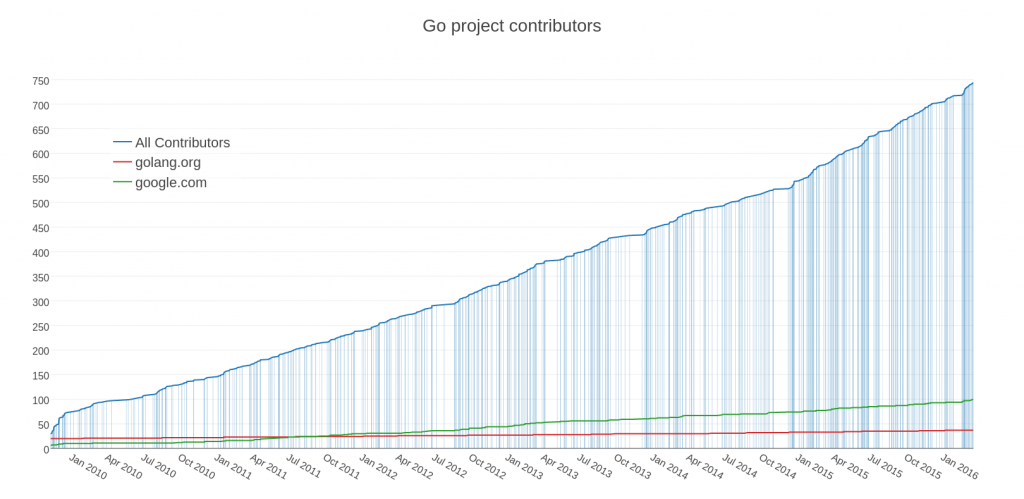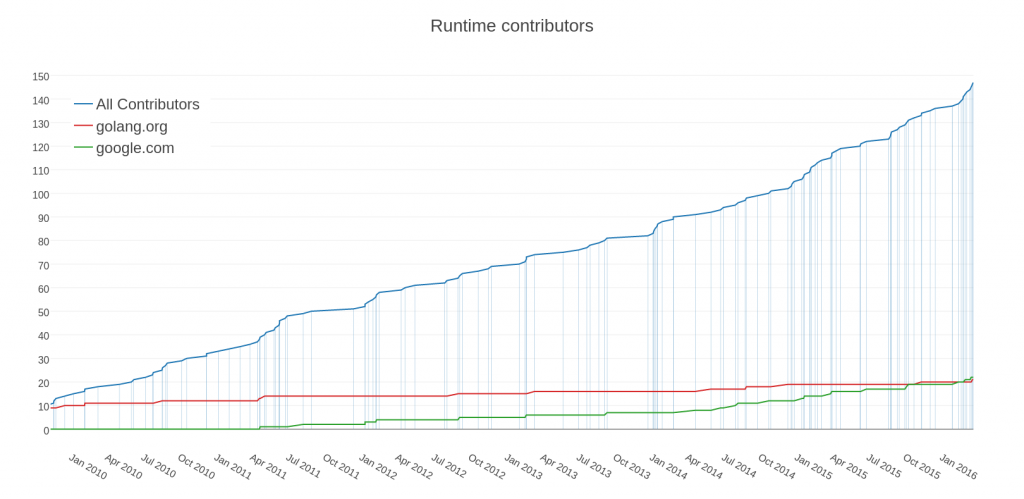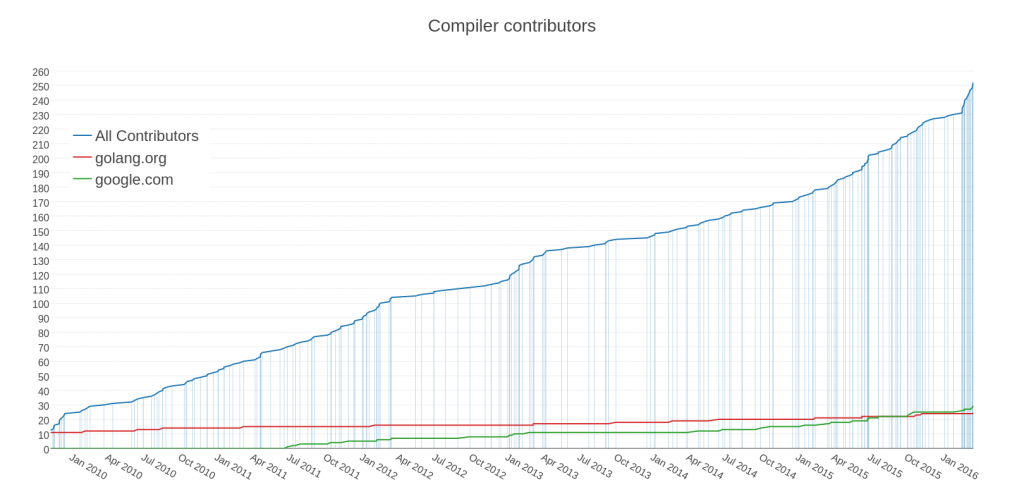In December 2014 the Go project moved from Google Code to GitHub. Along with the move to GitHub, the Go project moved from Mercurial to Git, which necessitated a move away from Rietveld to Gerrit for code review.
A healthy open source project lives and dies by its contributors. People come and people go as time, circumstance, their jobs, and their interests change. I wanted to investigate if these moves were a net positive for the project.
Go project contributors
As of writing 744 people have contributed to the Go project. This number is slightly lower than OpenHub‘s count, which also includes the golang.org/x sub-repositories that this analysis ignores. The number is slightly higher than GitHub‘s count for reasons which are unclear.

Go project contributors (click to enlarge)
This graph shows contributors over time. As a new contributor lands their first commit, a line representing the current count of contributors is placed on the graph. The graph also records the number of contributors whose email addresses end in golang.org or google.com as a proxy for the Go team and Google employees respectively.
Did the move to Git, Gerrit, and GitHub increase the number of contributors, and thereby contributions? Almost certainly. The graph shows a clear up-tick in the number of new contributors to the project from January 2015 onwards. However with so many factors in play it is not possible to identify a single cause.
It should also be noted that even prior to the move, the project has always attracted a healthy stream of new contributors.
Runtime contributors

Runtime contributors (click to enlarge)
From June 2014 to December 2014, the Go runtime was rewritten (with the help of some automated tools) from C to Go. This graph records the number of contributors to the parts of the standard library considered the runtime. This has changed over time as paths have been renamed, but is currently what we think of as the tree rooted at $GOROOT/src/runtime.
Did the rewrite of the runtime from a dialect of C that was compiled with the project’s own C compiler to Go increase the number of individual contributors willing to work on the runtime? Unfortunately not, although the number of Googlers contributing to the the runtime did increase slightly. An increase in individual runtime contributions did not occur till the following January once the move to GitHub was complete.
Compiler contributors

Compiler contributors (click to enlarge)
After the move to GitHub, the Go compiler was translated from C to Go for the Go 1.5 release. This process was completed by May 2015. Did this have an impact on the number of new contributors specifically targeting the compiler? Possibly, there was a short lived spurt of new contributions around July 2015. The reason for this could be attributed to the strong message from the Go team that the 1.5 release was focusing on the runtime, specifically the garbage collector, and that the current compiler was to be replaced with the SSA back end being developed for the 1.6 time frame (since delayed til 1.7).
This latter point is supported by the clear spike in contributors after February 2016, when the 1.7 tree opened for development with the SSA back end attracting a number of talented new contributors.
An open source project
At the moment there is no question that the largest contributors by total commits to Go are the Go team themselves. This stands to reason as they are sponsored by Google itself to develop the language. However, out of the current top 16 contributors to the project, the number 7th, 9th, 11th, 14th, and 16th contributors are neither members of the Go team or employed by Google.
The charge is commonly levelled at Google that Go is not an open source project. This analysis shows that claim to be false. The number of contributors from the Go team, or Google, continues to be a dwindling fraction of the total number of contributors to the project.


